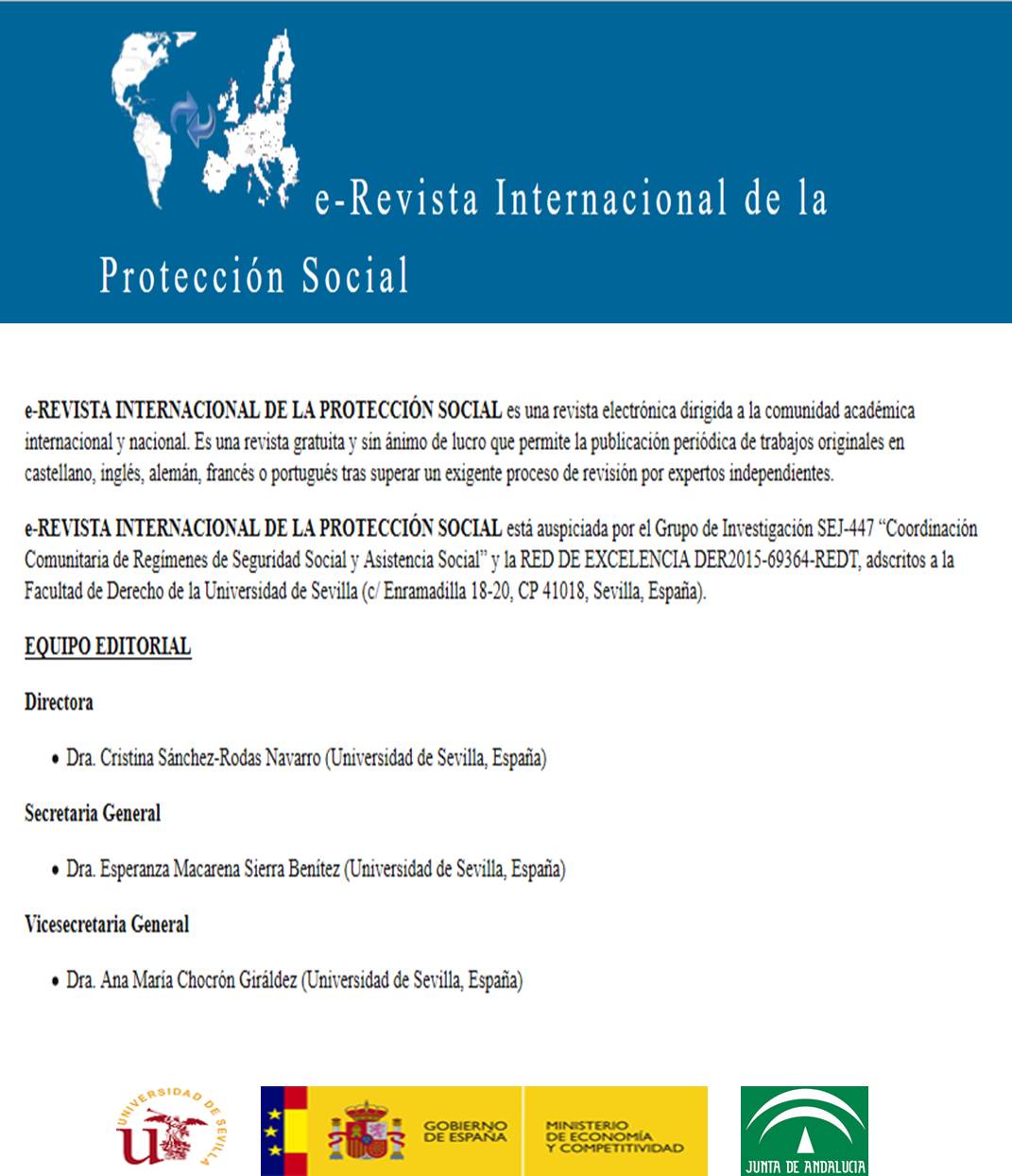SOCIAL DIALOGUE AND VULNERABLE GROUPS: YOUNG PEOPLE, OLD WORKERS: THE PORTUGUESE PERSPECTIVE
DOI:
https://doi.org/10.12795/e-RIPS.2016.i01.10Abstract
The financial crisis that hit the global market in the middle of 2008 gave way to the sharpest contraction of the European economies since the Great Depression, a crisis that has resulted in widespread job losses and social hardship. Unemployment, especially youth and long term unemployment, is destructively high, and a growing numbers of workers are found among the working poor, and an evolving awareness of inequality has galvanised policy debates across the globe and Portugal is no exception to this situation. A growing cohort of workers, especially among the young and old, is shouldering the flexibility that employers demand, leading to growing job insecurity and a greater inability of workers to manage their working hours and ensure a decent income.
In this paper we highlight that policies promoting employment and equality and nondiscrimination must focus on the groups of employees with the most severe problems in the labour market. One of these groups, among others, are young people and older ones, since the risks of long-term social exclusion has strongly increased in Europe for them.
Secure jobs, which were once the norm for previous generations in Portugal, have become less easily accessible for today’s youth. At the same time, informal employment among young people remains pervasive and transitions to decent work are slow and difficult.
With this paper we try to dedicate special attention to this disadvantage group, because we think that it is both a social emergency and an economic necessity.
It is also of core importance to develop Active Labour Market Policy who has the aim to transfer the use of passive support to active help for integration of people in the labour market, like the Youth Guarantee programme that Portugal established.
The role of the social partners and social dialogue is also critical in this context, as they have a significant part to play in shaping and improving working conditions.
Downloads
Downloads
Published
How to Cite
Issue
Section
License
Authors being published in this journal agree to the following terms:
- Authors retain their copyright and they will guarantee to the journal the right of first publication of their work, which will be simultaneously subject to license recognition by Attribution-NonCommercial-ShareAlike (CC BY-NC-SA 4.0 DEED)
that allows others to share such work provided that the author’s name and his first publication in the e-International Review on Social Protection is stated. - Authors may take other non-exclusive distribution license agreements version of the published work (e.g. deposit in an institutional digital file or publication in a monographic volume) provided that the initial publication in this journal is stated.
- Authors are allowed and encouraged to disseminate their work via the Internet (e.g. in institutional digital files or on their website) prior to and during the submission process, which can lead to interesting exchanges and to increase citation of the published work.











